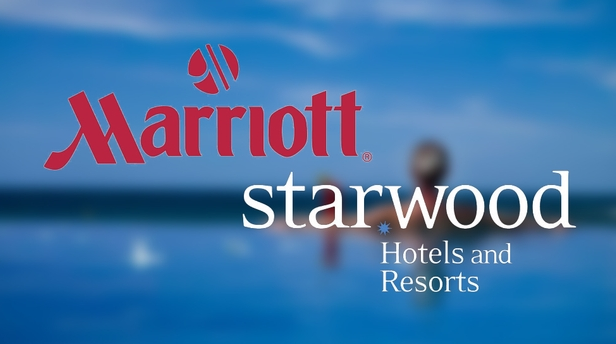
After Offer From Anbang-Led Group Puts Marriott-Starwood Deal In Jeopardy, Marriott Answers Right Back
Takeover battles capture the imagination of Wall Street and the investing public. The relative rarity of their occurrence in the Real Estate and Hospitality sector only adds to the intrigue when they happen. This most recently happened earlier this year with Simon Property Group’s hostile takeover attempt for Macerich. While that deal was in the retail subsector, Wall Street’s eyes are now feasted on one in the Hospitality sector between Marriott International Inc. and Anbang Insurance Group for Starwood Hotels & Resorts Worldwide Inc.
Last November 16, the top story in the business press worldwide was the announced purchase of Starwood by Marriott. The $12.2 billion deal, proposed as a cash and stock offer, would have created the largest hotel chain in the world, with over 5,500 hotels in over 100 countries. Two weeks ago, less than a month before the pending Starwood shareholder vote, scheduled for March 28, the deal was shaken up by a $13 billion, all-cash bid by the Chinese firm Anbang Insurance Group. The offer values Starwood at approximately $76 per share. Anbang’s partners on the deal include the Chinese private equity firm Primavera Capital Group and the American private equity firm J.C. Flowers and Company.
Marriott, which was due to receive a $400 million termination fee if Starwood backed out of the deal, initially granted a temporary waiver enabling Starwood to consider the Anbang offer. On Friday, March 18 Starwood officially announced that Anbang’s offer was “superior,” to Marriott’s. Not to be shunted aside, Marriott promptly answered on Monday, March 21 by announcing that it had raised its bid by 10%. Marriott’s latest offer boosts the cash component of its bid to $21 cash plus 0.8 shares in the combined company per share, valuing Starwood at $79.53 per share. Additionally, Marriott will now be due $450 million if Starwood accepts the Anbang offer. Marriott’s stock price has climbed from around $60 in mid-February to over $72 as of Monday, March 21. With much of Marriott’s offer composed of stock, any further topping bid for Starwood will likely need to be in the mid-$80 per share range.
The chaos surrounding this deal comes just days after Anbang purchased Strategic Hotels and Resorts from The Blackstone Group for $6.5 billion, and a year after Anbang purchased the Waldorf Astoria Hotel in New York City for a record $1.95 billion, or $1.4 million per room key – an important industry metric. While there have been richer deals on a per-room basis, Anbang’s insurance money-fueled buying spree has rapidly captured the imagination of the real estate world. Between the Waldorf, Strategic Hotels and now Starwood, Anbang could become one of the world’s leading hospitality owners, having potentially assembled a $21 billion portfolio in just over 15 months. By purchasing Strategic, Anbang’s portfolio will contain trophy properties such as Manhattan’s Essex House, the Four Seasons resort in Jackson Hole, Wyoming, and the Intercontinental in Miami. The winner of the Starwood bidding war will gain a portfolio including the Westin, Sheraton, W and Le Meridien brands.
Anbang has emerged from humble origins as a regional/provincial automobile insurer to become one of China’s most aggressive acquirers of foreign companies. The company has spent billions purchasing part or all of insurers in South Korea, Europe and the U.S., as well as purchasing stakes in listed Chinese developers, financial services firms, traditional Chinese medicine makers, and alternative energy firms. Despite its mid-pack ranking amongst Chinese insurers measured by income from premiums, the Beijing-based firm has completed nearly $28 billion worth of deals, according to Bloomberg, with most of those acquisitions of foreign companies and coming since 2014.
Chinese interest in Starwood began long before Anbang announced its bid. In fact, several Chinese companies expressed interest in Starwood from the outset, when the hotel company announced last spring that it had hired investment bank Lazard to explore strategic alternatives. Chinese lodging behemoth Shanghai Jin Jiang International Hotels Group Co. and others such as HNA Group, parent of Hainan Airlines Co., and the sovereign wealth fund China Investment Corp. each presented separate proposals to the Chinese government seeking approval to bid for Starwood before the Marriott deal was announced.
Despite the rich takeover battle, there is no guarantee that a Chinese deal for Starwood will either materialize, nor that U.S. regulators will approve a deal. This takeover battle is playing out amidst an uprising of political opposition to Chinese takeovers of US companies. That said, don’t forget that the one-asset purchase of the Waldorf-Astoria went through without a hitch. This deal has already become one of the most interesting takeover sagas in the history of the real estate sector, and does not appear to be anywhere near finished. Stay tuned.
